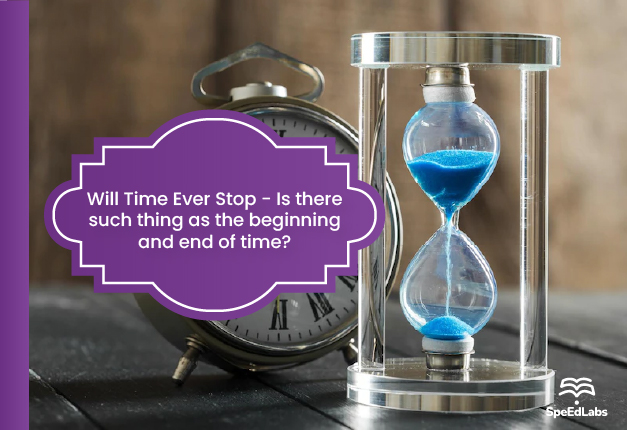A big freeze, a big crunch, or a big rip could be the end of the universe. However, whether time comes to an end with the death of the universe depends on whether it is even real.
Let us look in the opposite direction, to the beginning of time, before tackling issues related to time’s end. Our universe, which was once thought to be eternal and unchanging, first came into existence around 13.8 billion years ago. In the big bang, space and time spontaneously appeared out of nothing. However, we cannot be certain that is what took place. It is an extrapolation based on observations of a universe that has, over billions of years, been expanding and cooling from something denser and hotter, as well as the equations of general relativity, Albert Einstein’s theory of gravity.
Our observations take us back to a time that is roughly 380,000 years after the universe’s hypothetical beginning when it had cooled enough for the first atoms to form and radiation began to ping through space. The hiss of the cosmic microwave background is the current manifestation of that radiation.
In the first microsecond, when the entire observable cosmos was about the size of our solar system, we can go even further back in time thanks to Einstein’s theories. Beyond that, neither theory nor observations are of any use to us. When Einstein’s equations are extended far enough, they lead to a seemingly absurd “singularity” of infinite temperature and density. Did time start at that point?
Can Time Be Defined?
Time is difficult to define. We use years, days, and lunar months to measure time because those are how long it takes the Earth to complete one rotation around the Sun (the time it takes the moon to wax and wane). Hours, minutes, seconds, milliseconds, and nanoseconds are all artificial constructs of the human mind. We invented them.
The Sun and time have always been inextricably linked. The sundials used by the ancient Egyptians and Babylonians roughly divided the day into 12 equal parts. The result of the ancient Mesopotamian sexigesimal (base 60) numbering system is 60-minute hours and 60-second minutes. To keep track of time, the French tried using the decimal system (base 10 rather than 12), but they were unsuccessful. By adding gradations to sundials to denote the divisions of time throughout the day, the Greeks improved the sundial.
Hence, the way of measuring time kept on evolving. So, is time not human-made?
Will time end, once the universe ends?
The Big Bounce
Some physicists believe that the Big Crunch might only mark the halfway point of the universe’s existence rather than its end. The universe begins infinitely large, shrinks for an infinite amount of time, and then is compressed to the smallest size possible, according to this line of reasoning. Instead of the world ending at that point, the universe explodes in a Big Bang.
In the Big Bounce scenario, the universe expands infinitely after being compressed into the tiniest possible space, but it does so over an infinitely long period before. No beginning or end exists for time.
Some Big Bounce models only have one bounce for the entire cosmos. In others, it bounces an infinite number of times while constantly expanding and contracting, much like an accordion that never stops playing.
All of these hypothetical situations illustrate what is conceivable but not necessarily true. One of them is that we have yet to define dark energy. However, more importantly, there is no guarantee that our present knowledge of the nature of the cosmos is accurate.
Someone (perhaps you?) will come up with a better theory to describe the workings of the universe one day, maybe in 100 years or just a few weeks. Maybe then, we will know if the time ever comes to an end. Perhaps the new theory will have a completely different concept of time, or even do away with it entirely.
